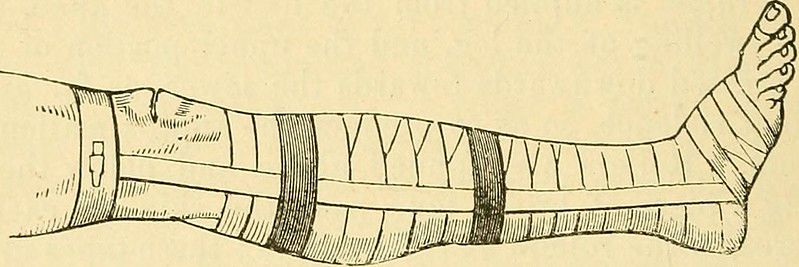By Conlan Doherty, Fourth Year, Cellular and Molecular Medicine
The University of Bristol collaborates with the Scar Free Foundation to highlight candidate genes at play during scar formation, following an injury. The project is set to cost £1.5 million and is the first of its kind to explore such research areas.
The collaboration sees the University of Bristol partnering with the Scar Free Foundation Programme of Wound Healing Research for a five-year project dedicated to scarring, and elucidating any genetic influences implicated. The research will be led by University of Bristol academics: Paul Martin, Professor of Cell Biology; Nic Timpson, Professor of Genetic Epidemiology; and Dr Beck Richardson, Researcher and Lecturer in the Faculty of Life Sciences.
Scarring results from wounds or injury to physical health and represents an innate method via which the body repairs itself and mitigates any damage. For those with physical scars, the health burden can transcend physical manifestation and take its toll on mental health, as scars can often be uncomfortable and restrictive.
Paul Martin, Professor of Cell Biology at the University of Bristol remarked ‘The Scar Free Foundation’s investment with the University of Bristol gives us a unique opportunity to undertake world class research into the genetics of scarring.’
In the UK, it is estimated that over 20 million people are affected by scarring tissue.
‘The programme will enable us to marry up the fantastic population health cohort approaches that Bristol does so well, with our own wet lab experimental and cell biology studies in order to break new ground in scarring research.’
The Scar Free Foundation is the only medical research charity based entirely on scarring and has ambitions to establish scar-free healing within a generation. The charity was founded in 1999 and aims to improve the lives of those affected by scarring.
Chief Executive of the Scar Free Foundation, Brendan Eley explained ‘Scarring can cause long term emotional and physical problems including pain, itching and loss of movement, requiring the need for frequent operations, skin grafts, cream application multiple times a day and daily physiotherapy.
We want to find ways of making life easier in the future for the millions of people living with scarring in the UK.’
Scar tissue is fibrotic and naturally replaces damaged tissue, such as the skin or lungs. The exact genetic mechanisms underlying these processes are contestable and have warranted research to determine what genetic events are coordinating scar tissue formation, and how this differs from the regeneration of non-fibrotic tissue.
To mediate these findings, demographic health data will be assessed against model organisms to identify genes pertinent to scar formation. Data will be gathered from children with cleft lip surgery scars, individuals with BCG vaccination scars, women with caesarean section scars and individuals with internal lung scarring to determine genes with high activity that may contribute to the process of wound healing.
This data will then be compared to data obtained from studies using zebrafish, a model organism which possesses the ability to rapidly regenerate non-fibrotic tissue at the site of injury. The comparison may highlight shared genes, or similar genes between humans and zebrafish, which can inform the development of future treatments in effectively minimising scar formation and the starkness of their presentation.
Memory testing over four weeks could be an effective predictor of Alzheimer's disease
A genetic study of proteins: a big step for open data sharing in drug development
Dr Beck Richardson summarised ‘Being a part of this exciting project will allow us to study how certain genes influence wound repair and the severity of subsequent scarring. Live imaging studies in translucent zebrafish will allow us to see how changes to these genes affects certain cells involved in scarring and gives us an experimental window through which to watch scars being formed and to identify ways to stop this.’
This exciting research not only possesses the potential to enhance our understanding of regenerative tissues and their genetic limitations, but also exhibits the potential to improve the lives of countless individuals living with scarred tissue.
Featured image: Flickr/ Internet Archive of Book Images
Are you hopeful about the prospect of having more effective scar treatments?







